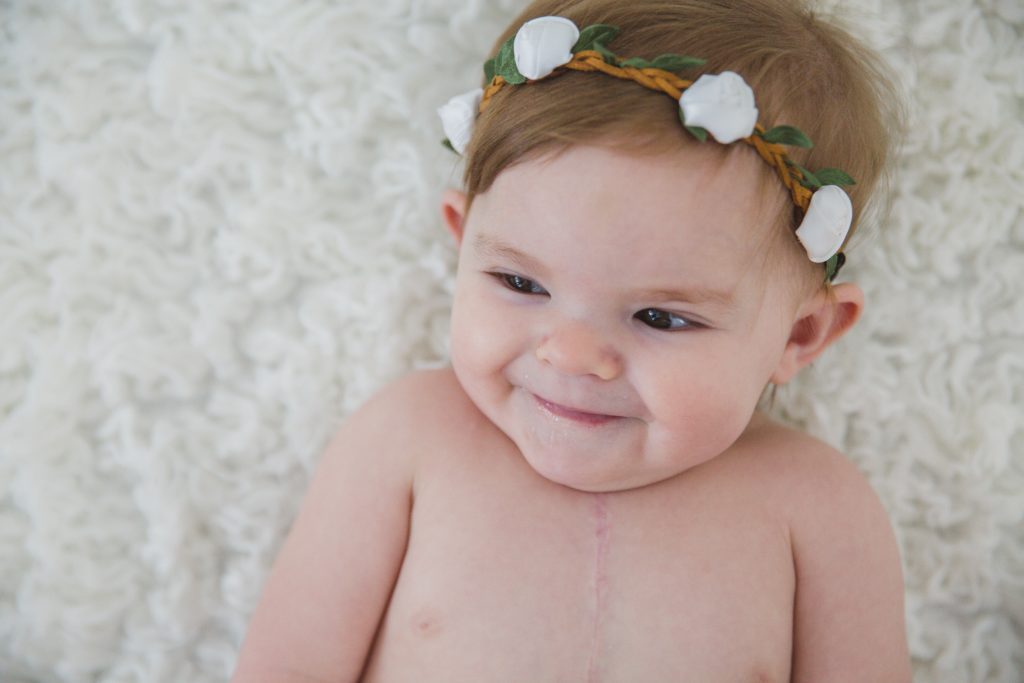In the United States, approximately 450,000 children under the age of 18 are admitted for surgery annually. Here in Idaho Falls, we are fortunate to have state-of-the-art facilities and experienced board certified surgeons that specialize in pediatrics with safety focused programs that can perform a variety of surgeries expertly at our very own Eastern Idaho Regional Medical Center (EIRMC). You can trust that you are in good hands at EIRMC, but we are also incredibly privileged to have a board certified Child Life Specialist on staff at EIRMC. A Child Life Specialist is a healthcare professional who focuses on your child’s psychological and social health and can help guide your child (and you, too!) through the ins and outs of the hospital experience.
I recently had an opportunity to talk with EIRMC’s Child Life Specialist, Diana Moll, about what I could do as a mother to help my child’s surgery experience be one that is as comfortable as can be.I think it’s safe to say that The hospital can be a scary place regardless of age. As mothers, we strive to empower our children and to remind them that they can do hard things. I know that I personally have faced many situations during which I simply didn’t know how to prepare my child for an upcoming difficulty. I hope that the following tips will help you to know some dos and don’ts as well as making you feel confident as you prepare your child for a seamless procedure.
Something that is important to note for children of all ages is that the vocabulary used within a hospital is likely unfamiliar. Whether we’re talking to an infant, a toddler, a preschooler, a school-aged child, or a teenager, there can often be language used within medical facilities that is unfamiliar.
For all ages, it is recommended that familiar language be used instead. For example:
-Rather than telling a child he/she is going for a CT scan or cat scan and having a 5 year old imagine literal cats, try explaining that there is a large camera that is going to take pictures of certain body parts.
-Rather than telling a child he/she is going on a stretcher (like taffy, maybe?), describe it as a bed with wheels and side rails
Something else to consider when dealing with children of all ages is the particular language that is used not only as it refers to familiar versus unfamiliar language, but also as what Diana Moll refers to as “hard vs soft” language. For example, rather than explaining that the medicine is going to taste “bad”, perhaps refer to the taste as “different”. Rather than telling a child he or she is getting a shot (like through a gun), describe the medicine going through a needle with a poke. Instead of saying “This may hurt”, use words such as sore, pressure, or uncomfortable. Simple language shifts from hard to soft and unfamiliar to familiar can help a child feel comfortable and empowered through an otherwise fairly scary experience.
 One parent is allowed back into the Post Anesthesia Care Unit, otherwise known as the PACU or the recovery room. The PACU is an area within the hospital that is equipped to assist children while they recover from anesthesia and their procedure. As a parent, you can help alleviate some of their anxiety by greeting your child in the PACU directly after surgery. It is important to remember that each child wakes up differently, based on the type of surgery, response to anesthesia, and their medical condition. It is common for your child to be fussy or cry during the recovery phase.
One parent is allowed back into the Post Anesthesia Care Unit, otherwise known as the PACU or the recovery room. The PACU is an area within the hospital that is equipped to assist children while they recover from anesthesia and their procedure. As a parent, you can help alleviate some of their anxiety by greeting your child in the PACU directly after surgery. It is important to remember that each child wakes up differently, based on the type of surgery, response to anesthesia, and their medical condition. It is common for your child to be fussy or cry during the recovery phase.
Many children will have questions about a procedure they are going to undergo. Be honest and open with them. If you do not know the answer, EIRMC has an experienced support staff who are more than happy to answer the questions you or your child may have to ensure you go into your surgery experience as knowledgeable and comfortable as possible. As mothers, we all understand that our children change as they develop. What may be appropriate for a teenager may not be appropriate for a Preschooler. Following are some age-specific tips that may be helpful in preparing each developmental stage for surgery.
Infants (0-12 months):
-You set the tone, so do your best to stay calm.
-Comfort your child in the most natural way possible: rocking, singing, cuddling
 Toddlers (1-3 years):
Toddlers (1-3 years):
-Prepare the day before as preparing too far in advance can cause anxiety.
-Provide him/her a choice of which toy or comfort item to take to the hospital as this helps the child feel that he/she is in control of something and do still get a say in a situation where they may otherwise feel powerless.
Preschoolers (3-5 years):
-At this age, Diana Moll starts offering a pre-surgery tour to familiarize the child and family to the environment and medical equipment. These tours can help to ease a child and parent’s anxiety and clear up any confusion or misconceptions about what will or won’t happen.
-It is important to assure your child that this surgery is a necessary part of his/her medical care and is not in any way a reflection of his/her behavior. This is not a punishment!
School Aged (5 years-12 years):
-Prepare your child the week before surgery to give him/her time to process the information and come up with questions with enough time to get answers.
-Parents, be prepared for the child to come out of anesthesia unsteadily or sometimes even violently. This is not a reflection of how the procedure has gone, it is simply a physical side effect of anesthesia for this particular age group.
Teenagers (12-18 years):
-While some may want to be treated as adults, it is important to remember that they are still children. Empower and educate this age group, but also give them the space necessary to process.
– It is imperative that this age group feels involved in decision making and are active participants while understanding that some things are unavoidable.
-You should be talking openly, honestly, and as frequently as necessary with your child while allowing them privacy to process the information on their own.
As with all things, it is important to note that each individual child develops at a different pace and tips from different levels may be appropriate for your child regardless of age. Use these tips as a general guideline and remember that you know what your child needs individually.

Surgery and the hospital experience can be a scary, but necessary part of childhood. With technological and medical advances, we are raising children in an incredibly advanced medical climate. While many of us hope our children will never have to go through surgery, we can rest assured that we have the best pediatric resources in the region and that together with an outstanding surgical staff and a dedicated Child Life Specialist at EIRMC, we can be an excellent asset to our own child’s surgical team.
To read more about Diana Moll and her role as a Child Life Specialist at EIRMC, click here!












